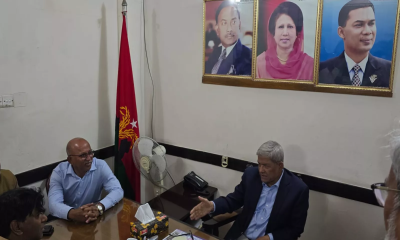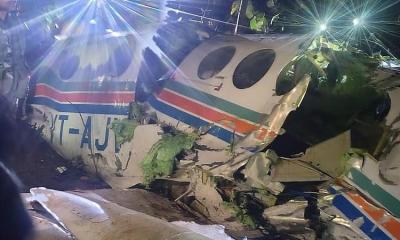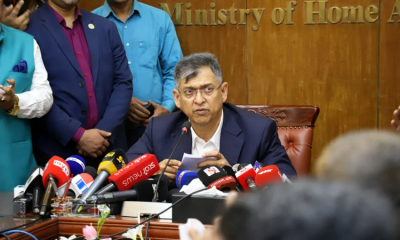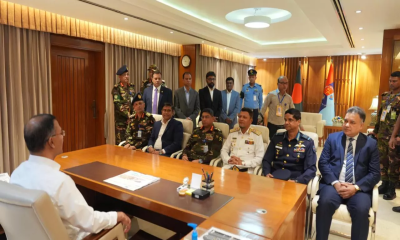Nahid Islam, convenor of the National Citizen Party (NCP), has called on the National Consensus Commission to lay the groundwork for reforms that bring about a qualitative and fundamental transformation of the state structure.
He made the call during a dialogue with the Association for Consensus and Progress (ACP) on Saturday at the LD Hall of the National Parliament, reports bdnews24.com
The meeting was chaired by the Consensus Commission`s Vice-Chairman Ali Riaz. Commission members Badiul Alam Majumdar, Safar Raj Hossain, and Iftekharuzzaman were also present.
At the start of the session, Nahid said: “The July 2024 mass uprising has created the context for this meeting today. It was a historic uprising in which the people of Bangladesh forced a 16-year fascist regime to flee. This moment has come at the cost of the lives and wounds of thousands.”
The NCP emerged in the wake of the July Uprising as a new political party, built on the strength and drive of the nation’s youth, according to Nahid.
“Our message following the uprising has been clear: we want to abolish fascism and establish a new political order.”
“This movement wasn’t just about removing a single individual from power or replacing one party with another. It was a push for a fundamental reimagining of the state, one that would genuinely protect the rights of the people.”
As a former advisor to the interim government, Nahid reflected on past struggles and said: “Throughout history, people have taken to the streets for change. We’ve read about the 1990 mass uprising in books, but we’ve also seen how popular hopes have been repeatedly dashed.
"These failures paved the way for 16 years of authoritarian rule. That’s why we must ensure this time is different. The aspirations of the people must be fulfilled. It is a promise we all owe to the nation.”
The Consensus Commission has been working to consolidate the recommendations of five reform commissions and to reach a common ground among political actors around key proposals for structural reform.
The commission had earlier sought input from 39 political parties on major recommendations from the reform reports. Based on the feedback, it is now engaging in dialogue with the respective parties.
Nahid pointed out that for the NCP, “reform” meant foundational change.
“Reform, in our view, must bring about deep, structural transformation. Over the years, we’ve seen how our Constitution and key state institutions have been politicised. The Constitution itself was built around a centralised, individual-based power structure. As long as that structure remains intact, whoever holds power will be prone to fascist or authoritarian tendencies.”
He emphasised that the NCP places special importance on reforms related to the Constitution, the prime minister’s powers, the judiciary, and the electoral system.
“We have reviewed the recommendations sent by the Consensus Commission and have shared our opinions. In most areas, we are in agreement. Where we have partial disagreements or concerns, we’ve submitted brief proposals. We hope to discuss these in detail today.”
“We now have a real opportunity before us. What we need is national consensus and a new July Charter to guide us forward. We must all commit ourselves to ensuring that no new fascist or authoritarian system ever takes hold in Bangladesh again. From wherever we stand, we must work together to build a truly democratic constitution and state structure.”
The NCP delegation also included Member Secretary Akhter Hossen, Senior Joint Convenor Samantha Sharmin, Senior Member Secretary Nahida Sarwar Niva, Chief Organiser (South) Hasnat Abdullah and Chief Coordinator Nasiruddin Patwari.
The National Consensus Commission, led by Chief Advisor Muhammad Yunus, began its work on Feb 15. It aims to hold discussions with political parties and forces to build a national consensus, and review recommendations from the other reform panels ahead of the next parliamentary elections.











-20260224075258.webp)


-20260224065127.webp)


-20260223082704.webp)
-20260223074941.jpeg)
-20260223062301.jpg)















